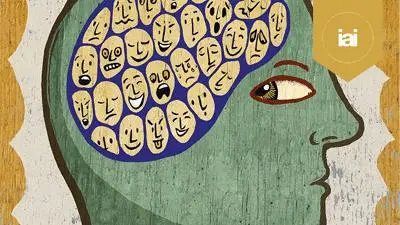Nine Myths About Schizophrenia
Richard Bentall
About the Course
Despite investment in research and treatment, the outcomes of patients diagnosed with the most severe psychiatric disorders have not improved since the Victorian period. Where are the flaws in our understanding? Mental health treatment needs a radical overhaul to bring it into the 21st century – but what needs to change?
In this course, Professor Richard Bentall debunks nine myths about schizophrenia that affect the understanding of the public and professionals alike, and identifies signals that opinion is beginning to shift towards a more humane approach to care.
By the end of the course, you will have learned:
- The impact of classification on our treatment of psychoses.
- How odds ratios and heritability statistics are used to calculate relative risks.
- How meta-analysis can be used to uncover the correlation of environmental factors affecting psychosis.
- Why there will never be a genetic test for schizophrenia.
- What we can learn from the international variation of outcomes for people diagnosed with schizophrenia.
- How the accepted best treatments are changing today.
As part of the course, there are in-video quiz questions to consolidate your learning, discussion boards to have your say, and an end-of-course assessment set by Professor Bentall.
IAI Academy courses are designed to be challenging but accessible to the interested student. No specialist knowledge is required.
About the Instructor
-
Richard Bentall
Richard Bentall is Professor of Clinical Psychology at the University of Sheffield, a Fellow of the British Academy, and a leading researcher on schizophrenia, psychosis, and public mental health. He is the author of Madness Explained and Doctoring the Mind.
Course Syllabus
-
Part One: Myths of DiagnosisIs schizophrenia distinct from other disorders? Do people with schizophrenia never recover?
-
Part Two: Myths of CausesIs schizophrenia a disease of the brain, largely genetic and unaffected by life experience?
-
Part Three: Myths of TreatmentShould all patients receive drugs? Is psychotherapy ineffective in treating schizophrenia?
Suggested Further Readings
- Bentall, R., Madness Explained: Psychosis and Human Nature, (London: Penguin, 2003).
- Moncrieff, J., The Myth of the Chemical Cure: A Critique of Psychiatric Drug Treatment, (Basingstoke: Palgrave Macmillan, 2009).
- Whitaker, R., Anatomy of an Epidemic: Magic Bullets, Psychiatric Drugs, and the Astonishing Rise of Mental Illness in America, (New York: Crown, 2010).
- Read, J., Dillon, J. (eds.), Models of Madness: Psychological, Social and Biological Approaches to Psychosis, (London: Routledge, 2013).
- Boyle, M., Schizophrenia: A Scientific Delusion?, (London: Routledge, 2002).
- Szasz, T., The Myth of Mental Illness: Foundations of a Theory of Personal Conduct, (New York: Harper Perennial, 2010 [original 1961]).
- Slade, M., Personal Recovery and Mental Illness: A Guide for Mental Health Professionals, (Cambridge: Cambridge University Press, 2009).
- Bracken, P., Thomas, P., Postpsychiatry: Mental Health in a Postmodern World, (Oxford: Oxford University Press, 2005).


